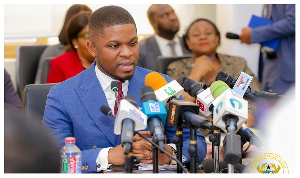For all eight times that Ghanaians have gone to the polls to elect a president and parliamentarians since 1992, the number of ballots categorized as rejected have been significantly high.
December 7, 2020 election has once again proven how much the phenomenon of rejected ballots have become endemic in Ghana’s elections.
Out of the 12 candidates who contested the presidential election, only two of them were able to gain more votes than the accumulated number of rejected ballots across the country.
A total number of 313,397 rejected ballots recorded represented 2.33% of the total votes recorded.
Significantly, the figure is more than the number of votes obtained by the 10 remaining presidential candidates combined, 1.339%.
The 10 minority parties put together gained 179,691 votes out of 13,432,854 votes cast.
In percentage terms, the Ghana Union Movement which obtained the third-highest by a political party in the elections had 200% less votes than the rejected ballots.
The history of rejected ballots has always caused political experts to raise concerns about its effects on Ghana’s elections.
In the 1992 general elections, 149,813 ballots were counted as rejected; 111,108 in 1996; 119,372 in 2000 and 188,123 in 2004.
The number of rejected ballots increased to 205,843 in 2008. It went up again to 243280 before marginally reducing to 167,349 in 2016.
With the 2020 general elections having the highest voter population of over 17 million and turnout of over 13 million, 313,379 rejected ballots were recorded, making it the highest in the history of the country.
General News of Friday, 11 December 2020
Source: www.ghanaweb.com













